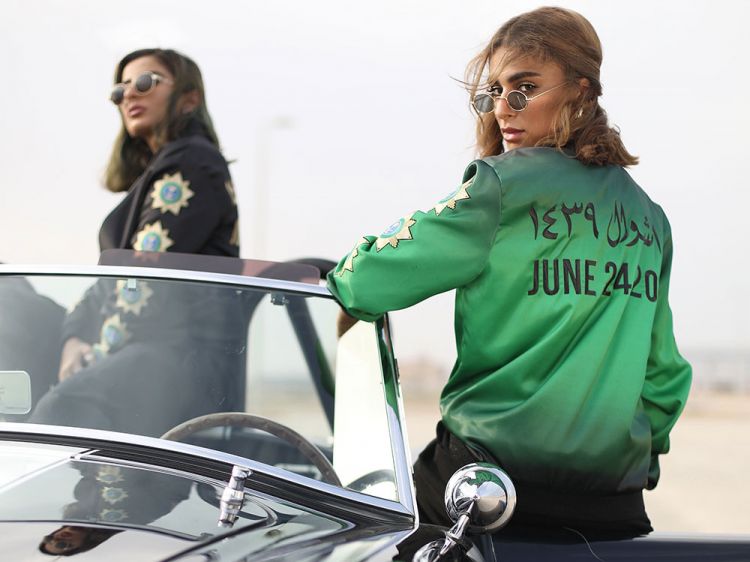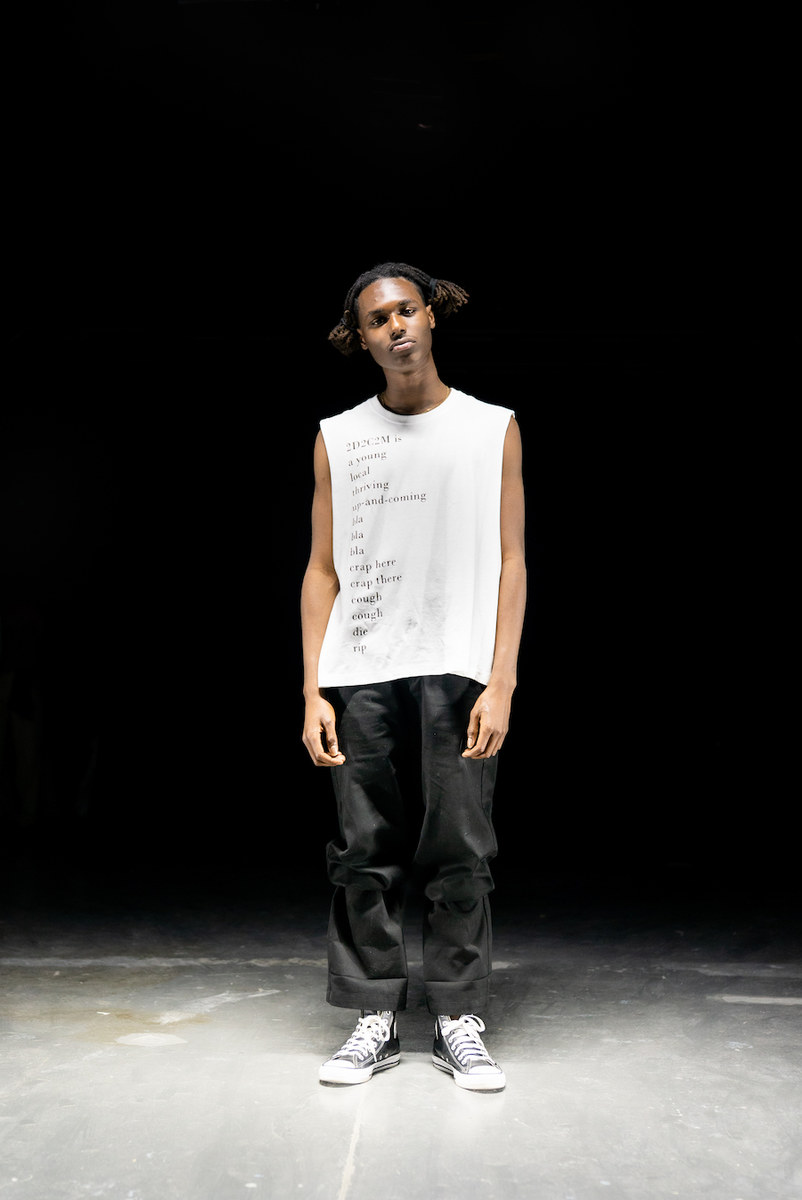DUBAI: Last week it was announced by Saudi Arabia’s Ministry of Culture that Burak Cakmak had been appointed to lead the Kingdom’s Fashion Commission, one of the 11 bodies under the Kingdom’s Ministry of Culture, to help develop the country’s burgeoning fashion industry.
“I was honored to have a chance to join the team at the Fashion Commission to lead the implementation of an ambitious strategy to build a robust fashion industry in Saudi Arabia,” said Cakmak, a former Dean of Fashion at the Parsons School of Design in New York, to Arab News.
“Saudi Arabia has all the key elements for building a successful fashion industry today. With traditions and heritage to inspire, its creative community keen to build new businesses and a fashion conscious young population engaged in retail and social media with fashion. Saudi (Arabia) is in a great place to become a key influencer in the region and globally,” he added.
In his new role as the CEO of the Fashion Commission, Cakmak will be responsible for a string of tasks, including supporting and empowering talent, professionals and entrepreneurs in the local fashion industry, developing and regulating the fashion sector as well as encouraging finance and investment.
“One of my main focus areas is to identify opportunities for Saudi to create fashion solutions that are innovative, technology driven, sustainable and aligned with the expectations of the 21st century global consumer,” said Cakmak of some of the changes he would like to implement in his new role.
“As we are building and growing a relatively new industry in the country, we need to ensure we don't repeat the mistakes of the West from the past century. This means that we need to focus on building new business models that are able to manage social and environmental impacts, (and that are) transparent and innovative in the way they engage the consumer.”
In addition to managing and developing the fashion sector in Saudi Arabia, Cakmak also hopes to shine a positive spotlight on the Kingdom’s burgeoning fashion scene.
“At the moment there is not enough information available about the creativity coming out of the Kingdom to the rest of the world,” he noted. “The richness of the country’s heritage and crafts, as well as its designers, with both traditional and modern takes on Saudi fashion, is a great starting point for us to start shaping perceptions around the Saudi creative industry.”
In the past two years alone, Saudi Arabia has rolled out a series of changes that can be attributed to Vision 2030, a plan that focuses on modernizing Saudi culture, diversifying its economy away from oil, attracting new global investments, and supporting small local businesses. One of the areas that is showing real potential is the country’s fashion sector.
“Recent initiatives around tourism and a deeper focus on diversifying local economic sectors have been a great catalyst in stimulating the fashion industry,” Cakmak said.

Models backstage ahead of the Arwa al Banawi show at Fashion Forward October 2017. Getty Images
Indeed, the country’s fashion sector is rapidly on the ascent. In the last couple of years, the country hosted its first-ever Fashion Week in Riyadh in 2018, the Dubai-based Arab Fashion Council opened up an office in Riyadh and Saudi fashion designers are getting more recognition than ever as they lay the groundwork for a real, thriving fashion industry.
“Mohammed Khoja’s brand, Hindamme, produced a jacket embroidered with the words ‘24 June 2018’ – the date women in Saudi started driving, which was acquired by the Victoria & Albert Museum in London as part of their permanent fashion collection. Meanwhile at the end of last year, the brand of Saudi sisters – Sarah and Siham Albinali – Lurline, was declared joint second runner-up in the Vogue Arabia Fashion Prize. And one of Mohammed Ashi’s creations was worn on the red carpet by Oscar-nominated director and screenwriter Ava DuVernay at the Academy Awards in 2017,” recalled Cakmak, highlighting some of the many success stories from Saudi Arabia.

Jory Al Maiman and Lujain wearing the Hindamme embroidered jacket. Photographed by Ekleel Al Fares
But despite growing interest and support from events like Arab Fashion Week, a lot of brands struggle with a lack of access to capital and resources necessary in a functioning fashion ecosystem. Cakmak hopes to change that in his new role.
“A brand can only succeed if they are able to couple creativity with a sound business strategy,” he explained, adding “I am working closely with the Fashion Commission team and the Ministry of Culture to ensure we are creating the right infrastructure to develop the industry. First and foremost, we want to support fashion entrepreneurs with the right regulatory frameworks relevant to the fashion industry. As we assess the local fashion ecosystem, we are identifying areas for new job opportunities and fashion businesses that can be created locally to support a growing fashion industry in Saudi Arabia.”
Cakmak received a bachelor’s degree at the Middle East Technical University in Turkey in 1997.
His career in the fashion industry began in 2000, serving as Gap Inc.’s senior manager of social responsibility. After eight years, he relocated to London and was hired by European conglomerate Kering to lead sustainability strategies for the luxury group’s brands — including Gucci, Saint Laurent and Balenciaga — as its first director of corporate sustainability.

In January, Saudi designer Ahmed Alwohaibi staged the kingdom's first-ever independant fashion show in Riyadh. Supplied
He was appointed as dean of fashion at Parsons School of Design in 2016, where he made it his mission to educate the next generation of fashion creatives about the importance of environmental and social responsibility.
With his 15-year-strong background in sustainability, Cakmak hopes to make the topic a key focus in his new role in Saudi.
“As the Fashion Commission, we are keen to bring the latest tools for measuring and reporting on the sustainability impact to local brands and share knowledge on how to build more sustainable business models for the fashion industry,” he shared.
“Made in KSA will be a key focus to create short supply chains where we can encourage on-demand production and mass customization to minimize returns and left-over inventory for the industry,” he added of his strategy to minimize the impact of the fashion supply chain in the Kingdom.
As for his long-term goals for Saudi’s fashion sector, Cakmak just wants to position the country as a key player in the global fashion industry.
“In collaboration with the Fashion Commission team, Ministry of Culture and all other relevant government entities, I hope to put in place the incentive and infrastructure to achieve this goal,” he said.
“I have worked with fashion businesses all across the globe and have a good understanding of the opportunities and challenges they face. I also have a good view on the latest developments in the industry, and access to a global network of experts who we can tap into to shape the future of fashion in the Kingdom. I am really excited to be a catalyst to bring such positive change to the country.”












